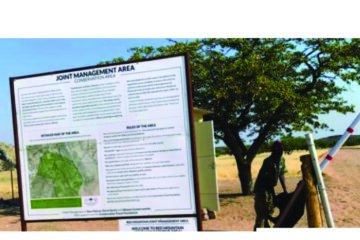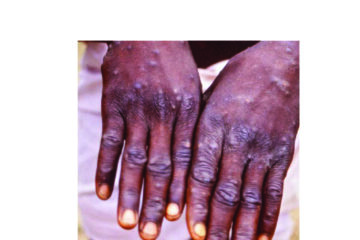Stefanus Nashama
HEALTH Ministry Executive Director, Ben Nangombe says Namibia was ranked in the top 10 in the world in terms of Tuberculosis (TB) related occurrence rate last year.
According to the World Health Organisation, the country has a TB incidence rate of 460 per 100 000 people.
In response, Nangombe stated that TB remains a scourge in Namibia, particularly among those living with HIV.
“The programme data show that HIV infection is the most common risk factor attributed to TB infection in Namibia, followed by malnourishment, excessive alcohol consumption, smoking, and diabetes mellitus,” he said.
Nangombe made the remarks on Monday at a workshop for developing countries implementing Mine Health and Safety Standards Operating Procedures.
Nangombe further stated that an anticipated 10.6 million individuals, including 1.2 million children world-wide, became ill with TB in 2021, with an estimated 1.6 million dying from the disease.
According to the Executive Director, mineral miners are at an extremely high risk of contracting Tuberculosis (TB).
As a result, the East, Central, and Southern Africa Health Community (an intergovernmental Health Organisation) has developed four generic standard operating procedures to improve health and safety in the mining sector.
Nangombe highlighted that working conditions inside mines provide a high-risk setting for tuberculosis transmission due to enclosed and inadequately ventilated environments favourable to transmission.
He also acknowledged that the prevalence of tuberculosis among miners is believed to be 10 times higher than in the populations from which they originate.
At the same time, Nangombe stressed the importance of prioritising TB services in mining areas, while urged the workshop to engage and explore viable solutions for implementation.
According to the standard operating procedures, the goal is to guide member nations in prioritising the prevention, effective screening, and treatment of tuberculosis in mineworkers.
This involves risk management, early detection, and surveillance of tuberculosis (TB), HIV, and occupational lung diseases (OLDs) in the mining industry.
He stated that the workshop’s standard operating procedures will be implemented by the Ministry of Health and Social Services (MoHSS), other government line offices, and partner organisations.
Aside from standard operating procedures, the workshop is focusing on necessitating the addressing socio-economic determinants of health in the mining industry.
He cited factors such as poor working conditions, inadequate housing, and limited access to health care as contributing to the spread of tuberculosis.
According to Nangombe, this year marks 30 years since the World Health Organisation proclaimed tuberculosis a global emergency, yet the global tuberculosis epidemic continues to plague many countries, particularly underdeveloped countries.




